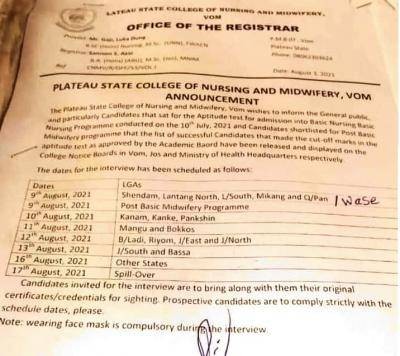
The Vice-Chancellor of the Federal University of Agriculture, Abeokuta, Ogun State, Prof. Olusola Oyewole, has challenged researchers to map out better strategies for organic agriculture in the country.
He said the call had become imperative, as organic agriculture had become a money-spinning enterprise.
The VC, represented by the Deputy Vice-Chancellor (Development), Prof. Kolawole Salako, gave the charge at a recent national conference organised by the Organic Agriculture Project in Tertiary Institutions in Nigeria organised the conference.
According to him, in developed countries, organic agriculture accounts for about US$65bn per annum of certified organic goods and products and so it is the time for Africa and Nigeria in particular to key into the initiative.
Oyewole noted that following the importance of the organic agriculture, the authorities of the university had concluded plans to run a degree in it.
The university, which he said the World Bank has designated as an African Centre of Excellence, would continue to be a pacesetter in agricultural development.
The acting Vice-Chancellor, Ladoke Akintola University of Technology, Ogbomoso, Prof. Adeniyi Gbadegesin, who also called for the development of the sub-sector, said it would help the world to avoid the effects of harmful chemicals associated with conventional agricultural practices.
Delivering a paper entitled Organic Agriculture for National Food Security, Conservation of Biodiversity and Climate Change Adaptation, Gbadegesin represented by the Heads of Department, Crop and Environmental Protection of LAUTECH, Dr. Iheme Olabiyi, said organic agriculture promoted soil enrichment, ecosystem, biodiversity and people’s health.
The don, who debunked the claim that organic agriculture would meet the world’s food demand, added that it performed better than the conventional agriculture practice on a per-hectare scale.
Also, the Vice-Chancellor of the National Open University, Prof. Vincent Tenebe, said organic agriculture, if well developed, could meet the country’s food demand, safe-guard its natural resources and promote a healthy environment.




